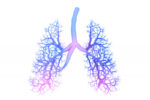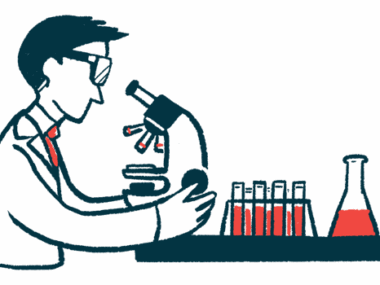Lung Health Has Been Vital for Me All My Life
I've had to be hypervigilant before and after my double-lung transplant
Written by |

My lung health has been on my mind my whole life. I’m constantly assessing potential environmental risks, my breathing, and what I can do to improve my lungs. Living with cystic fibrosis (CF) taught me to think about every breath. Five years of life after my double-lung transplant have taught me that I can trust my breathing is strong (though I still forget sometimes).
October has been Healthy Lung Month. For most, that doesn’t mean a thing. Sometimes I wonder what it’s like not to think about lungs. Normal people who haven’t had lung-related health issues breathe in and out seemingly without a care in the world. How is that even possible?
It’s a different story for those of us with chronic lung disease or who have new lungs due to transplant. There’s a level of hypervigilance that’s always lurking. It’s difficult to fully relax without keeping a mental check on our breathing. Tweaks and twinges in the chest region alert us that something is off and needs to be checked. We can’t ignore it. It could be serious!
Before my transplant, I was extremely nervous about getting sick. For me, a typical cold quickly traveled to my lungs, which were already battling aggressive congestion from CF. I avoided public places and crowds, especially during cold and flu season. I stayed home from social events if I knew someone was sick. I didn’t take any chances because the repercussions were severe.
Maintenance for my lung health was rigorous before my transplant. I nebulized and did airway clearance a few times a day. When I got hit with a respiratory infection or the germs in my lungs became overgrown, I typically needed a hospitalization because I couldn’t kick it on my own. Intravenous antibiotics around the clock and respiratory treatments four times a day were essential. Combating constant congestion was an exhausting, never-ending battle.
My lung health regimen is completely different post-transplant. Now it’s a matter of simply monitoring my lung function through pulmonary function tests (PFTs), bloodwork, and exercise capacity. If there’s a change in my PFTs, that could mean a respiratory infection (that I don’t always have symptoms for) or early signs of rejection. Bloodwork monitors the level of anti-rejection medication in my blood, and its numbers need to be within a certain range at all times to prevent lung rejection. If my exercise tolerance changes or I’m more breathless than usual, it could mean something is brewing.
I’m still anxious about getting sick. I’ve worn masks in crowds and stores since my transplant to protect my new lungs. My immune system is suppressed by anti-rejection medications, which further adds to the infection risk. I’ve tightened the reins even more since the pandemic. Nothing is worth risking my health or the gift of new lungs.
There are similar tasks that I’ve had to do before and after my transplant to keep my lungs healthy. I’ve always had to avoid smokers. Making sure there isn’t mold or other airborne pathogens that could be dangerous to breathe is vital. And allergens, smoke from fires, and pungent aromas trigger my sensitive lungs, further adding to my caution.
I’ve also had to keep my sinuses clear to protect my lung health. Before my transplant, I had four surgeries to clear my sinuses of the thick, sticky mucus. After the transplant, I’ve had one so far due to chronic sinusitis. Even though I have new lungs, my sinuses still have CF and carry germs that can potentially infect my lungs. Consistent ear, nose, and throat checkups, sinus rinses, and antibiotics when my sinuses flare up ensure my lungs remain healthy.
Even though I’ve struggled healthwise my whole life, one truth remains. I’ve done my best to keep my lungs as healthy and as strong as possible. My life looks different from most as a result, but I wouldn’t change it for anything. I’m just grateful to be alive and have new breath with my angel lungs.
Note: Cystic Fibrosis News Today is strictly a news and information website about the disease. It does not provide medical advice, diagnosis, or treatment. This content is not intended to be a substitute for professional medical advice, diagnosis, or treatment. Always seek the advice of your physician or other qualified health provider with any questions you may have regarding a medical condition. Never disregard professional medical advice or delay in seeking it because of something you have read on this website. The opinions expressed in this column are not those of Cystic Fibrosis News Today or its parent company, Bionews, and are intended to spark discussion about issues pertaining to cystic fibrosis.








Leave a comment
Fill in the required fields to post. Your email address will not be published.